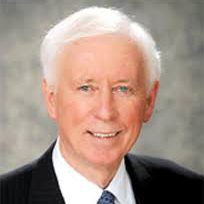Transparency and The Sunshine Act
The American Medical Association (AMA) meeting in Chicago, USA is the most important of the year for our organization. It is here that the House of Delegates approves policy and officers of the association are elected. In addition there is a veritable plethora of education sessions concerning issues facing physicians. One of the sessions I attended today was titled “Industry-physician financial interaction public transparency reporting”.
The session provided information about what is known at the “Sunshine Act”. Health system reform legislation passed in 2010, the Affordable Care Act, created this program. Its purpose is to make payments to physicians or teaching hospitals from manufacturers and group purchasing organizations (GPO) public by posting the information on a public website. The hope is that such information will be of value to patients as they make decisions about their healthcare.
It is not surprising that collaborations between those who make medications and those who prescribe them are common. It is recognized that such relations can be beneficial to physicians and industry in their goal to provide good quality care.
Cooperation promotes discovery and development of new technologies that improve health. However, conflicts of interest can arise because of financial ties between medicine and industry.
94 % of physicians have some type of relationship with industry. 83 % of physicians report receiving food and beverages in the workplace. $15.7 billion was spent by the pharmaceutical industry in 2011 on face-to-face sales and promotional activities. Physicians and industry have interactions, which further increase the impact of these relationships. 60 % were involved in medical education. 40% were involved in creating clinical practice guidelines.
It is important to point out that such relationships do not in and of themselves represent a conflict.
The “Sunshine Act” being put into effect this year requires companies to collect information about payments and other “transfers of value”(TOV) they make to physicians. They will submit this information to the US Federal Centers for Medicare and Medicaid Services (CMS). CMS will post this information on the web.
The “Sunshine Act” contains a long list of examples of TOVs that must be reported such as for example; consulting fees, honoraria, gifts, entertainment, food and beverages, travel and lodging, education, research and grants.
Examples of TOVs that are not reported include for example; transfer of value less than $10, product samples, educational materials that directly benefit patients, discounts, continuing medical education and in-kind items used for charity care.
Physicians are not required to report. The responsibility lies with industry. There is provision in the program for physicians to register to receive information on what is reported and dispute any inaccuracies.
Several states in the USA have existing transparency programs and publish similar information on public websites. Several dozen pharmaceutical companies have active Corporate Integrity Agreements (CIAs) and some require publishing payments to physicians publically on their websites. Some other pharmaceutical companies have voluntarily opted to disclose their payments to physicians on their websites.
The laudable goal of the “Sunshine Act” is to provide the public information about collaborations between physicians and industry and allow them to make judgments about whether conflicts of interest exist. I strongly support the goal of transparency and believe it is important for patients to be informed.
However, listening to the presentation today of what appeared to be an elaborate, complicated plan to post information on the web, I remembered previous similar programs in my state of Florida to post information (profile) about physicians. These programs, instituted with great fanfare, were subsequently largely forgotten and are rarely used or updated.
Today I listened to physicians ask questions in response to the presentation. I heard voiced in those questions concerns that yet another bureaucratic burden was being put in place that would not live up to its laudable purpose, and would be a source of increased hassle; adding little if anything to good medical care. Time will tell whether those concerns are well founded.

